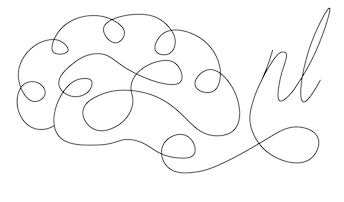Taking the first step - why is it so difficult?
New Light Counselling NL
Deciding to take the first step to see a therapist can be one of the most difficult decisions to make! We think to ourselves "are things really that bad?", "I'm feeling a bit better today maybe I don't need to". But something in our lives led us here - led us to explore online for options, to search around on different websites, read a bunch of therapist profiles. For you, what is that thing? Maybe it's a few things. For me, it was a desire to feel calm in situations that scared me. I felt as though my thoughts and emotions were controlling me, instead of the other way around. Realizing that there are changes we'd like to make is perhaps the easy part. So, what makes taking that first step towards making these changes just so difficult?
We get comfortable
Our mind and bodies are very adaptable. Even under high stress and anxiety, we learn ways to cope that help us get through the day - whether it's learning to avoid certain places or people, bottling up our emotions, or preparing ourselves for possible danger at anytime. These ways of coping may not be the best for our well-being, but they get the job done. We get comfortable in our ways of moving through each day, which makes the thought of self-exploration and change extra challenging.
However, just because something seems comfortable, does not mean that it brings us happiness. Avoiding certain places, bottling up emotions, and being hyper-vigilant, gets difficult and tiring. At some point we realize there must be an easier way. Stepping outside of our comfort zone can be scary- but the benefits that follow can be life-changing.
We don't want to be viewed as weak
As individuals, we hold considerable strength to overcome obstacles. So when things get overwhelming and too much to carry alone, we beat ourselves up over needing extra support. We should be able to handle it, we should be able to push through. Being vulnerable is complicated and something to be avoided at all costs, lest we be viewed as weak.
However, reaching out for support and opening the doors to vulnerability shows strength and courage - courage to do what's difficult for our own well-being and happiness. Our internal critic tells us that we should be tougher on our own. But we don't have to be alone.
We don't want to make our problems worse by talking about them
For so long, we've been just fine going about our business without talking about how we're feeling - biting our tongue when someone hurts our feelings, putting on a smile when all we want to do is cry, making ourselves small to keep the peace around us. Ignoring or avoiding how we're feeling seems much more manageable than the alternative.
However, as we continue to ignore or avoid difficult emotions, our minds and bodies continue to take the hit. We feel tired, agitated, we lack motivation and ambition. Maybe we can shield our emotions from those around us, but we can't hide from our own bodies. Talking about our struggles does not mean they will get worse. In fact, quite the opposite can happen as we get things off our chest that we've been holding in, learn to see things from a different perspective, and improve our ability to effectively manage the difficult emotions.
There may be many judgements about counselling that act as an obstacle between taking that first step. And that's understandable. Counselling can be intimidating and difficult. But it can also be freeing, self-empowering, and greatly beneficial.
Do you find yourself asking whether counselling is right for you? No matter your reasons for seeking care, you deserve to feel comfortable and assured. Book a free 15-minute consultation for us to get to know you and your needs better, and offer you an opportunity to ask us any questions you may have!

